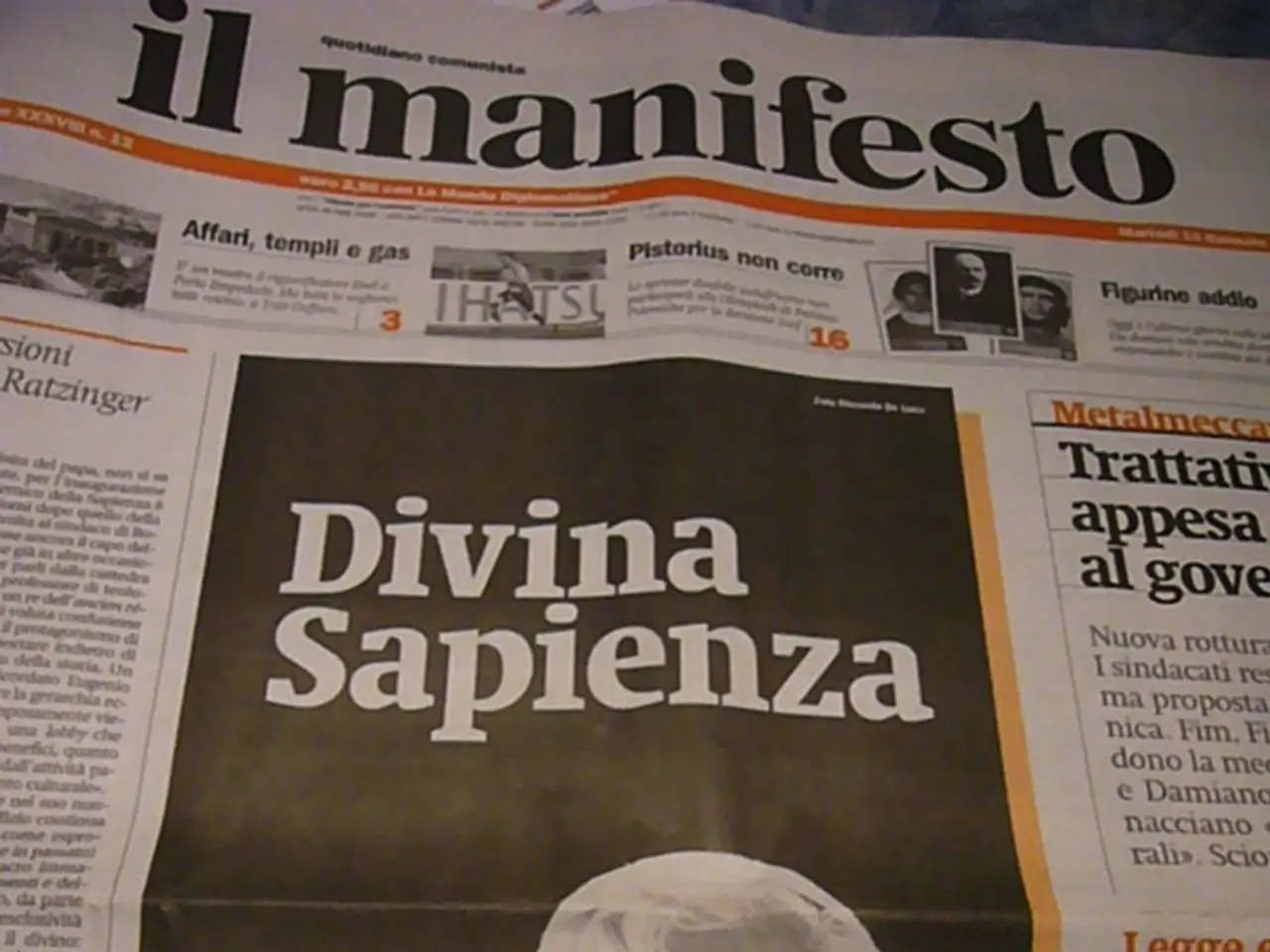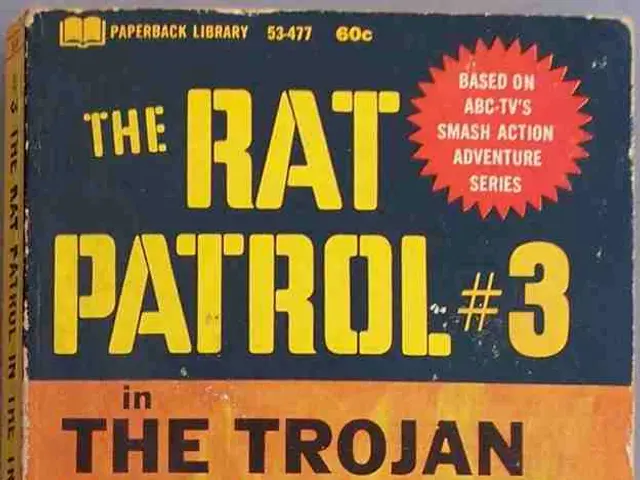Media aggressions: a lethal agreement among perpetrators
In a move that has raised concerns about media freedom and censorship, the Austrian Broadcasting Corporation has officially prohibited the re-airing of a show featuring Francesca Albanese, the UN Special Rapporteur for the occupied Palestinian territories. The decision comes amidst a contentious debate about media complicity in the Palestine conflict.
Francesca Albanese, who is the Special Rapporteur on the situation of human rights in the Palestinian Territory occupied since 1967, is a key figure in investigating and reporting on human rights situations. Her interview with Renata Schmidtkunz, an Austrian Broadcasting Corporation journalist, was scheduled to discuss media complicity in the crimes in Gaza.
The prohibition of the re-airing of the show could lead to allegations of censorship, impacting the public's perception of media freedom and the ability of journalists to cover sensitive topics like the Palestine conflict. Such an event might attract international attention, particularly from human rights groups and media organizations concerned with press freedom and the rights of journalists.
The Palestine conflict, being highly sensitive and politicized, is subject to intense scrutiny and criticism of media coverage. Accusations of media complicity or bias are common, and such discussions can be contentious. Preventing discussions about media complicity could limit public debate on the representation of conflicts and potentially contribute to a lack of transparency in media operations.
In a separate development, Israeli authorities have been reported to have murdered Al-Jazeera reporter Anas Al-Sharif and five other journalists. Al-Sharif had previously asked the international community for protection after being accused by the Israeli army spokesman of running a "Hamas campaign" and breaking down in tears during a live broadcast about the famine in Gaza. The Israeli army has been reported to be making statements regarding Al-Sharif's involvement with Hamas, but evidence for these claims is not provided.
Michael Rosen, a writer, has posted on the X platform that journalists worldwide are refusing to repeat anything Israel claims in response to the murder of Al-Jazeera journalists. Meanwhile, Mithu Melanie Sanyal, a writer, journalist, and cultural scientist who grew up in Düsseldorf, has not provided any further information about her background or current work.
In a controversial statement, Albanese stated that there is no empathy for Palestinians and that they deserve what happens to them in her interview. However, no further facts are mentioned in the paragraph regarding the famine in Gaza or the situation of Palestinians. The situation remains a complex and sensitive issue, with ongoing debates about media coverage, human rights, and international relations.
Read also:
- Massive 8.8 earthquake hits off the coast of Russia's Kamchatka Peninsula, prompting Japan to issue a tsunami alert.
- Court petitions to reverse established decision on same-sex marriage legalization
- Proposed Standardization of Food Labeling Laws Among Member States by the Commission
- Current News: AfD Achieves 26% - Union Dips to Laschet's Level







